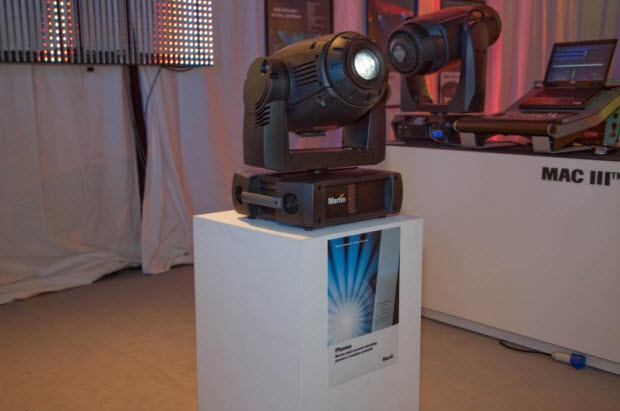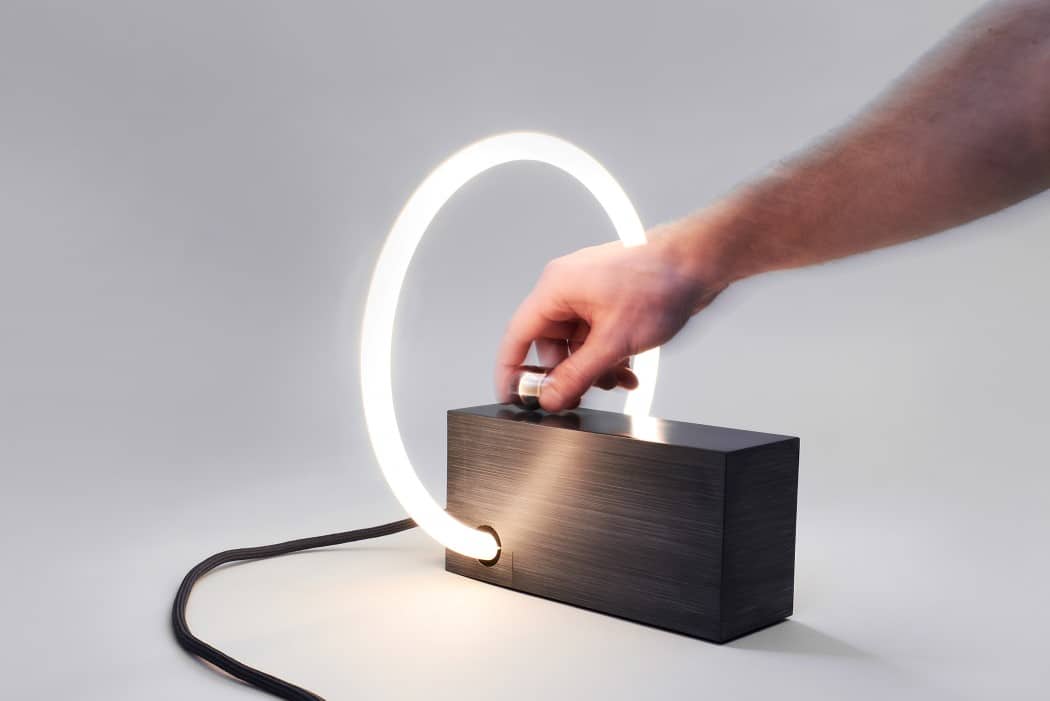

LIFI, plasma lamp, Luxim, Ceravision, and high CRI are all terms we’ve been hearing in the news lately. The plasma lamp is the hottest thing since Pop Tarts, and I have heard a lot of buzz lately with the industries regarding this technology.
Martin Lighting is working on a plasma lamp based fixture too – the philosophy is why not take this wonderful efficient source and create a whole new moving light around it? I got some information from Brad at Martin – check it out!
Martin is dedicated to producing the leading, most advanced plasma light on the market. Its advantages are many – greater performance, greater cost benefits, and a smaller environmental footprint – yet implementing a new technology in products without exhaustive research and stringent testing can have risky consequences.
Only through a thorough research process and substantial investment can plasma’s true potential be unlocked. Martin is leading this intensive effort, including development of advanced optical and cooling systems for optimized performance.
What are we showing at Prolight +Sound?
Martin is proud to be showing at PL+S a new type of high intensity plasma source. R&D has built a number of plasma-based concept fixtures housed in existing MAC designs, but let me emphasize that we are not showing a prototype of a new MAC using a plasma source but instead will be presenting a technology showcase. We have built products to support our research and development, as well as to test and prove the new technology in actual fixtures under real world conditions.It is important to understand that retrofitting the plasma source in conventional HID fixtures will not deliver the true benefits of plasma. It appears that some other manufacturers are trying to do this in order to get something quickly to the market, but we do not believe in such short cuts.
Having said that, we should not forget to mention that we are indeed working on real plasma fixtures but without revealing what that will be.
We also realize that this type of technology needs to be thoroughly tested before it is released as a commercial product. Our R&D team has already spent lots of time on research and have come very far. This work has lifted us to a position where we now have solutions to the many challenges that plasma presents. This intensive effort will allow us to soon bring commercial products to the market.
With this plasma showcase, we also want to enhance everyone’s understanding about what this interesting technology can bring in terms of real value propositions.
What is a plasma light source?
You can say that a plasma light is a tiny (the lamp is less than 9 millimeters) discharge lamp without any electrodes. Instead of applying a voltage and drawing a current through the lamp, the energy comes via a high frequency RF transmitter. The RF waves heat the materials inside the lamp and bring those materials to a plasma state so that the lamp emits light. This different method of transforming electricity into light has multiple benefits over the conventional way it’s done in a discharge lamp.http://www.martin.dk/admin/wizards/make_partnernews/pictures/clip_image002(1).jpg
What are the benefits?
The potential in the plasma light source is great and if this technology is applied to lighting fixtures in the right way, the benefits will be many. Some of the biggest are:– Increased energy efficiency
– Greater light output
– Cooler, quieter fixtures
– Longer lamp life
– Compact for smaller fixture designs
– More uniform light output across rig
– More continuous color spectrum
– Near perfect CRI (95+)
– Better for the environmentThe plasma source is efficient and very compact. This makes it work extremely efficiently in the optical system and the result is more light out of the fixture for the same power consumption.
With higher efficiency, the customer saves power, the fixture produces less heat, i.e. less A/C needed, and less fan cooling is required, which again means less noise and less dirt to clean out. Installation becomes easier and cheaper and money is saved on the power bill.
As a final note regarding efficiency, it is possible to dim the plasma lamp to very low levels, meaning that you further reduce power consumption when the light is dimmed.
Life and consistency
Lamp life of the plasma source is exceptional. Like LED and even HID sources, lamp life depends on how it is integrated, driven and cooled. We are already gaining a lot of know-how in this area, and you should expect to see fixtures with a lamp life of around 30,000 hours on full output! Although the initial cost of a plasma system is higher than HID, there is a very short payback time for the customer.An additional benefit is that light output and color temperature is much more consistent over longer spans of time. This makes it a lot easier and cheaper to get 10 lights in the rig to all look the same.
Compactness
The plasma light source is very compact which means that we can produce more compact fixtures with greater performance than larger ones.Color spectrum
The plasma lamp has a much more continuous color spectrum than an HID lamp. This can be seen and measured by a higher CRI, and some colors will appear more vibrant. People or objects that are illuminated will also appear better and in more authentic color tones.Better for the environment
The high energy efficiency has potential for reducing the carbon footprint by 30-50% which can be further increased via the power saving features. This greatly supports our Green Martin strategy as it allows us to produce fixtures with less environmental impact.Further, the plasma lamp contains much less mercury and other toxic materials than HID lamps and combining this with the extremely long plasma life, total waste of those materials will only be a fraction of HID’s.
At Prolight + Sound we are ready to support you and your customers by explaining about our plasma technology in greater depth and by giving them an impression of where we are with this technology.
Remember, we are not there to show a prototype of a plasma fixture but to educate about plasma technology.
Thanks for the image, Paul!




